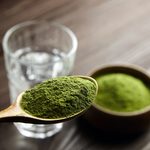7 Power Foods in Your Pantry
No need to spend big bucks on the latest exotic health food. The best foods for your health are the ones you know.
“Superfoods” are forever making headlines: Chinese goji berries, Ethiopian teff grain and Andean yacon syrup are a few examples. But the healthiest foods are familiar, well-priced—and backed by research.
Blueberries
Blueberries pack lots of disease-fighting antioxidants. A 2015 study published in Journal of the Academy of Nutrition and Dietetics suggests a daily cup can be as effective as medication for lowering blood pressure in hypertensive women. And a British study concluded that three half-cup servings a week of mixed blueberries and strawberries lowered heart attack risk. Frozen are usually as nutritious as fresh, says London dietitian Sarah Schenker.
Kefir
This probiotic dairy product has healthy bacteria that can fight disease, develop the immune system, boost gastrointestinal health and prevent allergy development, concludes a 2016 study published in Frontiers in Microbiology. “Kefir is potentially one of the healthiest foods,” says molecular biologist Paul Cotter, who led the study. Claudia Thienel, a Bonn nutritionist, suggests making a kefir breakfast smoothie with raspberries, banana and ground oatmeal.
Sauerkraut
Like kefir, unpasteurized raw fermented cabbage is probiotic. And a 2012 Polish study on rats, published in Nutrition and Cancer, showed that cabbage and sauerkraut slowed estrogen metabolism; this hormone can promote breast cancer cell growth. Choose the refrigerated type.
Beans
Kidney beans, lentils, etc., are a perfect balance of fiber, protein and complex carbohydrates. Their fiber may lower prostate cancer risk, concluded a 2016 Sorbonne University study. Beans are a protein source, so use them instead of meat in soups and stews.
Nuts
A staple of the Mediterranean diet, nuts are linked to longevity. Recent research from the U.K. and Norway shows that people who ate 28 grams a day (a handful) cut their heart disease risk by nearly 30 percent, compared to people who didn’t eat nuts. The unsaturated fats in nuts help lower cholesterol.
Green Tea
A Japanese study of about 90,000 people published in 2016 in Cancer Science found that those who drank lots of green tea had lower risks for certain cancers. A polyphenol antioxidant in green tea may be why. Other research suggests green tea boosts brain health. Black tea also has the beneficial polyphenols, says Schenker.
Oats
A 2016 British Journal of Nutrition review of studies found that oats are better than previously thought for lowering cholesterol, thanks to a soluble fiber in oat bran. It’s hard to get enough in a serving of oatmeal, so add oat bran to soups, salads or cereals, and bake with it.



